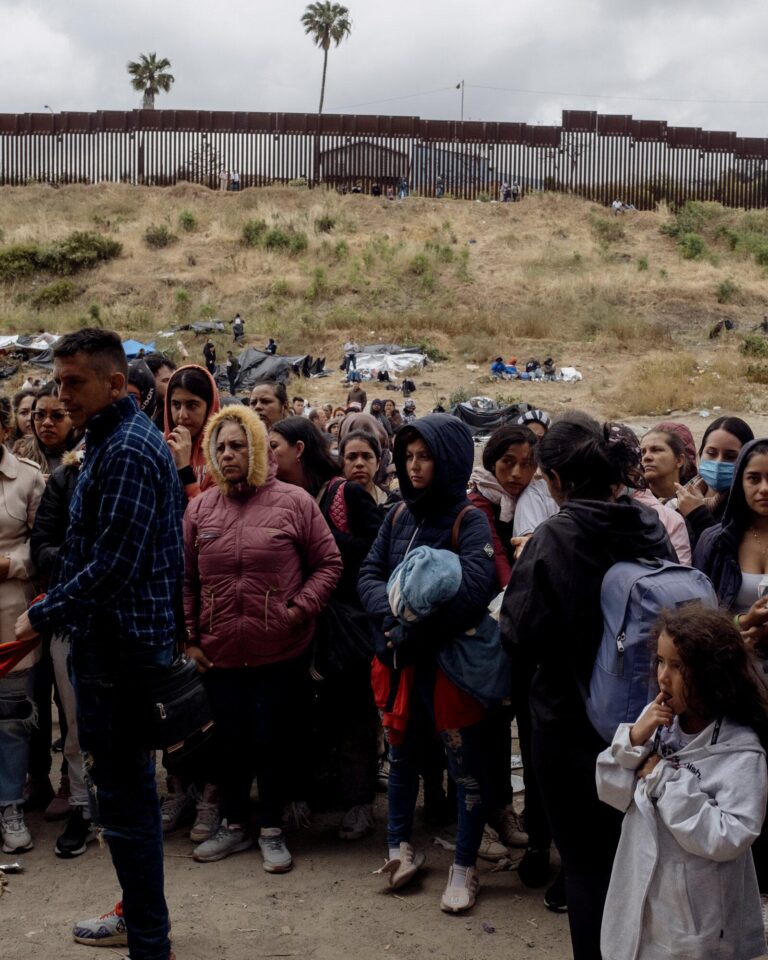As California grapples with complex challenges impacting its tourism industry, a new report highlights a significant shift in public concern. According to the “Border Report” published by Voice of San Diego, border politics are rapidly eclipsing homelessness as the state’s foremost issue affecting tourism. This emerging dynamic underscores how immigration debates and border security have taken center stage in shaping visitor perceptions, potentially overshadowing longstanding worries about urban homelessness. The report delves into the evolving political landscape and its implications for California’s economic vitality amid ongoing social challenges.
Border Politics Eclipse Homelessness in Shaping State Tourism Narrative
Recent surveys and interviews with visitors reveal a marked shift in perceptions that is reshaping the state’s tourism narrative. While homelessness had long dominated concerns tied to urban travel experiences, it has been eclipsed by political discourse surrounding border security and immigration policies. Tourists increasingly associate the region with its border tensions, overshadowing social challenges that previously drew media attention. Local businesses and tourism boards report a surge in inquiries specifically about border safety measures and related governmental actions, signaling a recalibration of traveler priorities.
The implications of this shift extend beyond public opinion, affecting marketing strategies and economic forecasts. Stakeholders now balance the need to address humanitarian issues alongside managing a politically charged image that influences visitor decisions. Below is a comparison of top visitor concerns from the latest state tourism report:
| Concern | 2019 | 2023 |
|---|---|---|
| Homelessness Visibility | 45% | 28% |
| Border Politics & Security | 22% | 53% |
| Public Transportation | 18% | 12% |
| Local Cultural Events | 15% | 7% |
- Border politics now dominate visitor concerns more than twice as much as four years ago.
- Homelessness issues continue to impact urban experience but have diminished in prominence.
- Efforts to decouple tourism from political controversy face increasing challenges.
Economic Implications of Border Disputes on Visitor Confidence and Travel Patterns
Visitor confidence in regions affected by border disputes is sharply declining, with many travelers perceiving these areas as high-risk or politically unstable. This perception leads to significant shifts in travel patterns, as tourists opt for destinations with more predictable and peaceful environments. The economic fallout is palpable, with local businesses reporting reduced bookings and lower foot traffic, particularly in hospitality and retail sectors adjacent to contentious border zones.
The disruption caused by political tensions can be quantified in a variety of economic impacts, such as:
- Decreased tourism revenue, sometimes dropping by as much as 30%
- Job losses in frontline tourism and service industries
- Lower investment in infrastructure and community projects
| Impact Metric | Pre-Dispute | During Dispute |
|---|---|---|
| Monthly Tourist Visits | 120,000 | 78,000 |
| Average Hotel Occupancy | 85% | 55% |
| Retail Revenue Growth | 6.5% | 1.8% |
Government and Community Responses to Shifting Tourism Priorities
State and local governments have rapidly adjusted their tourism strategies to address the growing concerns surrounding border security, now prominently influencing visitor perceptions. Several officials have launched awareness campaigns aimed at balancing public safety narratives with the promotion of the region’s historical and cultural attractions. Community leaders emphasize the importance of clear communication, working alongside law enforcement to ensure tourist areas remain welcoming and secure. Funding priorities have shifted accordingly, with increased investment in border patrol infrastructure and public information systems designed to reassure potential travelers.
Meanwhile, community organizations are mobilizing to support vulnerable populations impacted by these changing priorities. Collaborative efforts between non-profits, local businesses, and government agencies focus on maintaining essential services for the homeless while simultaneously preserving the area’s appeal to tourists. Key initiatives include:
- Enhanced shelter programs funded through mixed public-private partnerships
- Community-driven cleanliness campaigns to improve urban aesthetics
- Public forums and dialogues aimed at aligning tourism messaging with local needs
| Response Area | Key Actions | Impact |
|---|---|---|
| Border Security | Increased patrols, public info campaigns | Improved traveler confidence |
| Homeless Services | Expanded shelters, resource coordination | Reduced street homelessness visibility |
| Community Engagement | Town halls, tourism forums | Better public understanding |
Strategic Recommendations for Balancing Border Security and Tourism Industry Growth
To forge a sustainable path forward, policymakers must navigate the intricate relationship between border security and the local tourism economy. Prioritizing collaborative frameworks involving community stakeholders, immigration authorities, and tourism boards can foster innovative solutions that respect human dignity while maintaining safety. Emphasizing visitor experience through transparent communication about border operations and investing in tourism infrastructure near border regions will help mitigate negative perceptions fueled by political rhetoric.
Key strategic actions include:
- Enhanced Cross-Sector Communication: Establish regular forums where tourism operators and border agencies share insights and synchronize efforts.
- Targeted Investment: Develop cultural and historical attractions that celebrate border communities, drawing tourism without compromising security.
- Data-Driven Resource Allocation: Use analytics to balance border enforcement needs with tourism seasonality and visitor flow.
| Strategy | Benefit | Potential Challenges |
|---|---|---|
| Community Engagement | Improved trust and cooperation | Aligning diverse stakeholder interests |
| Tourism Infrastructure | Enhanced visitor satisfaction | Funding and land use constraints |
| Transparent Communication | Counter misinformation | Maintaining security discretion |
In Retrospect
As California grapples with the complex realities of border politics and homelessness, the shifting focus of public concern underscores the evolving challenges facing the state’s tourism industry. While homelessness remains a critical issue demanding ongoing attention and resources, the prominence of border-related political debates is reshaping perceptions and priorities. Moving forward, policymakers and community leaders will need to navigate these intertwined issues carefully to protect both public safety and economic vitality, ensuring that California remains a welcoming destination for visitors and residents alike.







